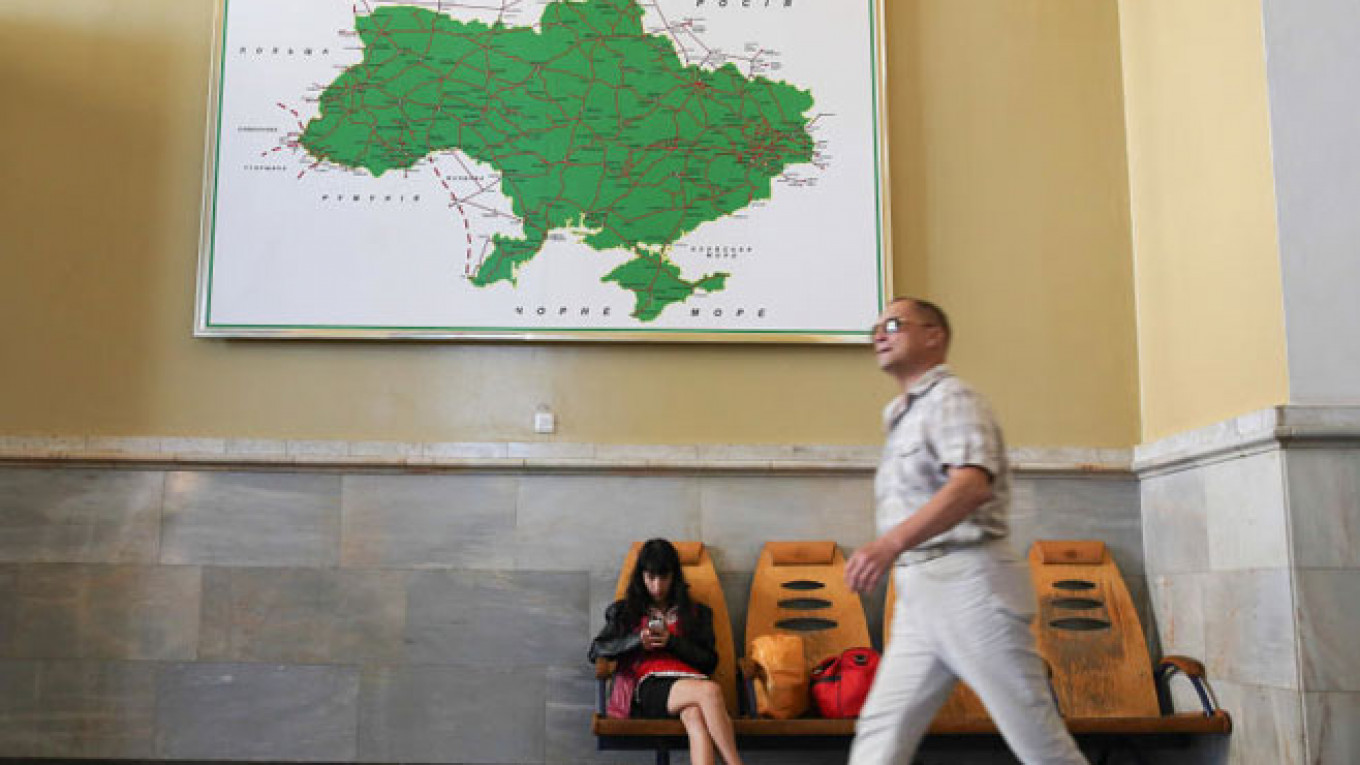Слова года 2014: words of the year 2014
The people have spoken. OK, maybe not all the people, but the few hundred who vote on Russia's слова года (words of the year) have cast their ballots.
And the winner is: крымнаш (ourcrimea).
Крым наш (Our Crimea) and Крым — наш! (Crimea is ours!) are ways of expressing that idea that an area of land belongs to us. But крымнаш — one word, lower case — is a thing, a meme, a mindset — everything connected with what some Russian speakers think was the rightful return of Crimea and what other Russian speakers think was its shameful annexation. Most of the time it is used by the latter folks about the former folks.
Пусть он в крымнаш едет (literally, "Let him go to ourcrimea") could be deciphered as "If he thinks Crimea is so great and we had a right to it, despite the world's denunciation and sanctions — let him go there for his vacation." Unspoken subtext: I'll take Venice — or St. Petersburg.
Sometimes крымнаш is even declined as if it were a masculine noun: Великое событие у русских после крымнаша! (It's a great event for Russians after "ourcrimea"!) Or it can be used to describe someone with Russian imperialist leanings: Он стал совсем крымнаш. (He's turned into one of the "Crimea Is Ours" people.)
And there is some lovely Russian wordplay in which the syllables get reversed into нам крыш (trouble for us). Уже начали понимать, что не крымнаш, а намкрыш. (People are starting to get that it's not "Our Crimea" but "Our can of worms.")
Not surprisingly, most of the nominated and winning words of the year were connected with politics in 2014. They are not very cheering, but often very insightful. Take the nomination тотальгия (totalgia), nostalgia for some aspects — sometimes imagined or romanticized, sometimes not — of the totalitarian past. Or демодернизация (demodernization), a process in which, in the words of project curator Mikhail Epshtein, "захлопывается окно, прорубленное Петром в Европу" (the window to Europe cut through by Peter the Great is being slammed shut).
New additions to keep an eye on next year are психократия (psychocratia, a political regime that rules by whipping up hysteria) and шизофашизм (schizofascism, a near-hysterical, purportedly anti-fascist position that conceals mercantile interests and a fascist mentality).
There was also a run on prefixed patriotism. You've heard of ура-патриотизм (jingoistic patriotism), haven't you? Now there's увы-патриотизм (alas-patriotism: patriotism mixed with sorrow); угу-патриотизм (yup-patriotism, patriotism out of habit); бла-бла-патриотизм (bla-bla-patriotism, declarative patriotism without substance); чур-патриотизм (keep away-patriotism, patriotism mixed with xenophobia); цыц-патриотизм (shut-up-patriotism, patriotism shouted to drown out any opposing views).
And a personal favorite: ленинопад (a Leninfall, that is, the tearing down of Lenin monuments on a mass scale in Ukraine).
Witty and quite wonderful is гуглик (googlik), one mention on the Internet, a kopek in the currency of web fame. Also, amusingly, for web-users is осетить (to publish something on сеть — Internet) and осетенеть (to be obsessed with the Internet). The neologism of the year was another web-based notion, the punning банный день — not a day when you go to the баня (bath house), but a day when you ban (банить) everyone you don't like on Facebook.
But it wasn't all politics and Internet. There's a new kind of selfie in town — вселфи — me and my friends, that is, me and все-все-все. Now that's a good way to end the year.
Michele A. Berdy, a Moscow-based translator and interpreter, is author of "The Russian Word's Worth" (Glas), a collection of her columns.
A Message from The Moscow Times:
Dear readers,
We are facing unprecedented challenges. Russia's Prosecutor General's Office has designated The Moscow Times as an "undesirable" organization, criminalizing our work and putting our staff at risk of prosecution. This follows our earlier unjust labeling as a "foreign agent."
These actions are direct attempts to silence independent journalism in Russia. The authorities claim our work "discredits the decisions of the Russian leadership." We see things differently: we strive to provide accurate, unbiased reporting on Russia.
We, the journalists of The Moscow Times, refuse to be silenced. But to continue our work, we need your help.
Your support, no matter how small, makes a world of difference. If you can, please support us monthly starting from just $2. It's quick to set up, and every contribution makes a significant impact.
By supporting The Moscow Times, you're defending open, independent journalism in the face of repression. Thank you for standing with us.
Remind me later.








